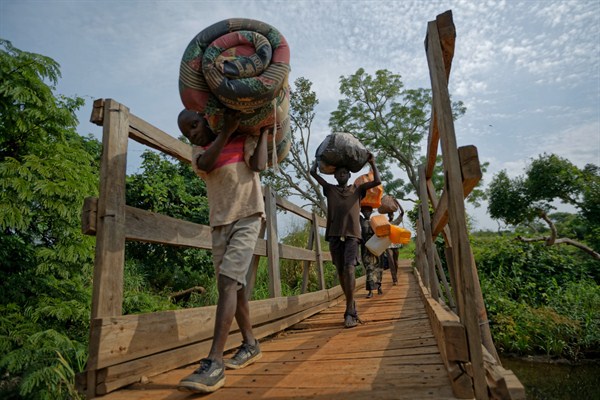Uganda has been praised for its open-door policy to refugees fleeing South Sudan’s civil war. But new evidence indicates that response was marred by lapses in accountability and disregard for institutional safeguards.
The international community has long lauded Uganda for its response to the massive influx of South Sudanese refugees who have fled across the border since the start of that country’s conflict in 2013. As the number of arrivals climbed into the hundreds of thousands, Kampala maintained an open-door policy and committed increasing amounts of land for agencies to construct temporary settlements and for refugees to build permanent shelters. The country opened up its schools and health clinics to the new arrivals. At a time when other countries around the world were taking steps to prevent asylum-seekers from even reaching their borders, Uganda was held up as an exemplar of humanitarianism.
The lapses in oversight robbed refugees of resources that could have been used to assist them. But the level of mismanagement, which is unlike anything UNHCR has documented in previous responses, risks undermining an effort that has been held up as an international model and raises concerns about how committed Kampala will remain to its open-door policy as international acclaim turns to derision. This comes at a particularly fraught moment: South Sudan is pushing forward with a peace deal that could easily collapse and force thousands more people to flee to Uganda.

